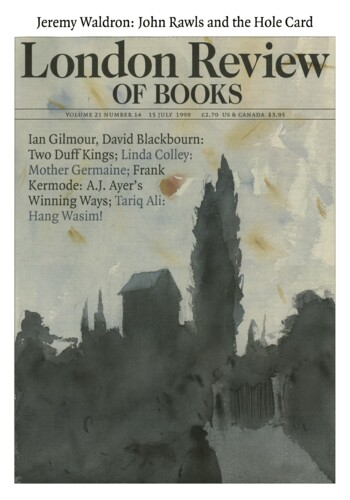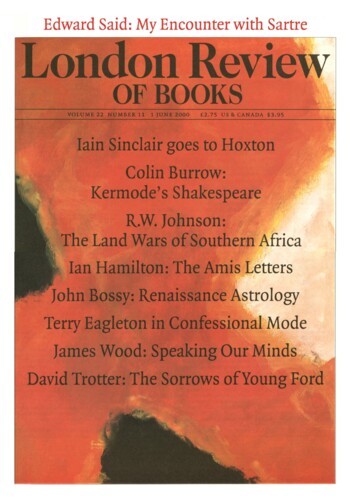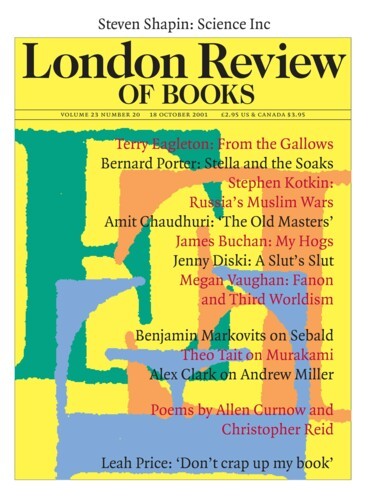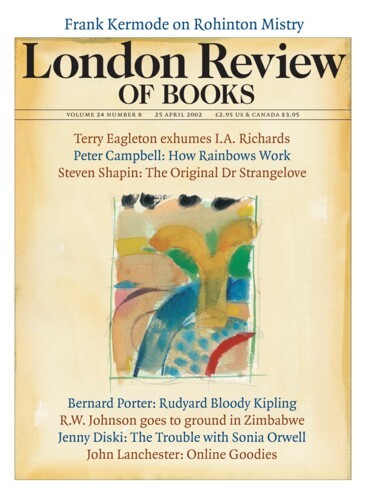Boarder or Day Boy? secrecy in Britain
Bernard Porter, 15 July 1999
It was Richard Crossman who described secrecy as ‘the British disease’. As with other alleged vices anglais – strikes, spanking and sodomy spring to mind – this seems on the surface to be unfair. Other societies have undoubtedly been as secretive. Soviet Russia, for example: I don’t suppose it was any easier to see your medical records there than it is here. But there are at least two British peculiarities. One is the depth of our secrecy. Not only are we secretive, we are secretive about how secretive we are. We aren’t allowed to know, and don’t on the whole seem to care, what is being kept from us. That is rather special; and a major factor, claims David Vincent in this path-breaking book, in our governance.’‘





